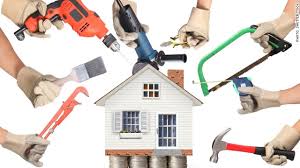To turn a house into a home, you definitely need a place that fits your style.
At the same time, it’s wise to keep in mind how other buyers view your house by looking at its resale value.
-
What Makes Up a Home’s Resale Value
In simple words, resale value is the amount for which someone would buy your house. Besides the market which can be either a buyer’s or a seller’s, the retail price will depend on several factors:
The home’s current and historical sales price
Historical data will have to drive resale predictions so compare the current list price with what the home was previously sold for. Tax records can provide the history of every time the house was sold along with the closing price.
The comparable sales
Valuation is always determined in part any comparing similar houses in the same area. This process helps to bring objectivity which is very important when you’re thinking about resale value.
Location, location, location
What’s the neighborhood like? Is it safe? Is it accessible and well-connected? What are the nearby features?
The size
In urban areas, you’re likely to encounter smaller square footage, while the suburbs, offer much larger options.
The layout
Over the years, layout styles and preferences have changed, such as the number of rooms, desired functionality, how well you used each square meter etc.
The age
Every house has its lifespan that is usually calculated through the age of its major elements like the roof, appliances, windows, electrical systems, plumbing, and HVAC systems.
The condition
Age doesn’t have as much effect on value, as long as a home is kept in good condition. This is achieved through regular maintenance and upgrades.
Storage space
As attractive as the minimalistic experience may seem, extra space for storage is always welcome because it can always be put to good use.
Upgrades
As a general rule of thumb, upgrades and updates increase the home’s value. But they don’t all cost the same nor they are valued in the same manner. Energy efficiency upgrades are among the most appreciated as they increase comfort and reduce living costs.
Curb appeal
What’s the view like? Is there a garden, a patio? Keep in mind that curb appeal adds 10% to a home’s value.
-
Best Improvements To Increase Your Home’s Value
You want the improvement to both make your home more comfortable for you while increasing its resale value for future owners. Large-scale projects don’t usually translate into large increases in your home’s value so if you are focused at resale value, home improvements that make an impact while spending less money are the way to go. Below are a few examples:
Make your home more energy-efficient
Energy efficiency can be as simple as replacing old appliances with Energy Star ones or installing a smart thermostat. These upgrades will help your home conserve energy and lower your Illinois Power bills. A minor kitchen remodel such as replacing outdated appliances has a return on investment of 81%.
Replace your front door
A new steel entry door almost pays for itself, returning nearly 91% of the cost in benefits. It will also prevent drafts and prevent indoor air such as heat escape, saving you in energy costs and making your home more comfortable.
Add a wood deck
Return on investment is 83% because a home’s outdoor space is so much more than its exterior appeal. It’s a place where most beautiful memories are made.
Remodel your kitchen
There is a saying that kitchens sell houses. Updating your kitchen doesn’t have to cost a fortune. If you want a big impact without the huge price tag, paint your cabinets to give them a whole new look or add a new tile backsplash to bring a kitchen color palette together or change the flooring to entirely change the feel of the room by. You can find low cost styles that mimic high-end finishes and provide a modern look.
Takeaway
Improving your home should be fun and enjoyable. By focusing on what makes you happy while also keeping resale value factors in mind, you will choose to make the right kind of upgrade that will benefit you both in the short-run and over the long-haul.
